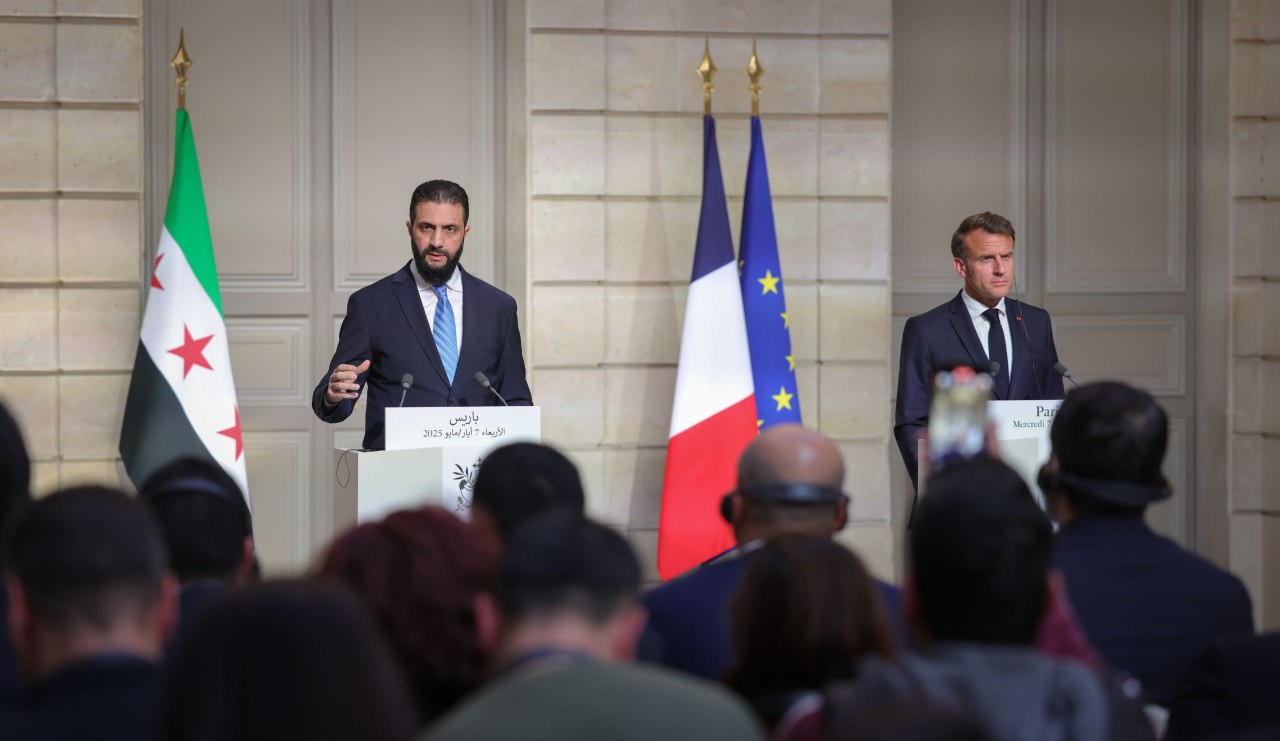Syrian Interim President Ahmed al-Sharaa met with French President Emmanuel Macron at the Élysée Palace during his landmark first European visit since overthrowing Bashar al-Assad in December. The leaders held extensive discussions on minority protection, sanctions relief, Captagon production, terrorism, and regional stability. Macron promised to pursue gradual lifting of EU sanctions if Syria maintains its current path, while urging protection for all Syrians “without exception.”
Diplomatic Breakthrough Amid Regional Tensions
The high-level meeting marks a significant diplomatic milestone as al-Sharaa, who previously headed the Islamist group Hayat Tahrir al-Sham (HTS), engages with Western powers. Despite requiring a UN travel ban exemption, the Syrian delegation included Emergency Minister Raed al-Saleh—the first time a cabinet member besides the foreign minister has joined a foreign visit.
During their “long” and “open” conversation, both leaders addressed pressing concerns about Syria’s future. Macron emphasized France’s commitment to helping establish “a free, stable, sovereign Syria that respects all components of Syrian society,” according to a French presidential official.
Al-Sharaa confirmed Syria has engaged in UAE-mediated indirect talks with Israel aimed at reducing tensions. “We will not allow sectarian strife, nor will we tolerate violations of Syria’s sovereignty by external sides,” he stated, addressing concerns about recent violence.
Sanctions Relief and Regional Security
A central topic was the potential lifting of international sanctions. Macron pledged to “pursue the progressive lifting of European Union sanctions against Syria” if Damascus maintains its reform path, adding he would lobby the United States to follow suit.
The meeting highlighted mutual security interests, particularly combating terrorism. “France will always be committed to working with Syria to fight Daesh,” Macron declared during their joint press conference, referring to the Islamic State group. He also stressed the importance of Syrian cooperation with Kurdish-led forces to counter terrorist organizations.
Both leaders discussed Syria’s efforts to tackle Captagon production—a major regional concern—and strategies to prevent further escalation with neighboring Israel and Lebanon.
Domestic Concerns and International Response
March’s sectarian violence, which claimed over 1,700 lives (mostly from Assad’s Alawite minority), has raised international doubts about Syria’s new leadership. Macron directly addressed these concerns, calling sectarian conflict “unacceptable” while expressing support for Syria’s transition.
Al-Sharaa emphasized reconstruction as crucial for refugee return: “The future of Syria will be rebuilt by those Syrians who return home.” This position aligns with European interests in addressing migration challenges.
The meeting faced criticism from French far-right leader Marine Le Pen, who accused Macron of hosting talks with “a jihadist” with past ties to extremist groups. Foreign Minister Jean-Noël Barrot defended the engagement, arguing that failing to work with Syrian and Lebanese leaders would “roll out the red carpet for Daesh.”
Despite controversy, the summit represents a potential turning point in Syria’s international reintegration. With focus on minority protection, counter-terrorism cooperation, and regional stability, both nations appear cautiously optimistic about establishing a new chapter in Franco-Syrian relations while navigating the complex legacy of Syria’s civil war.


